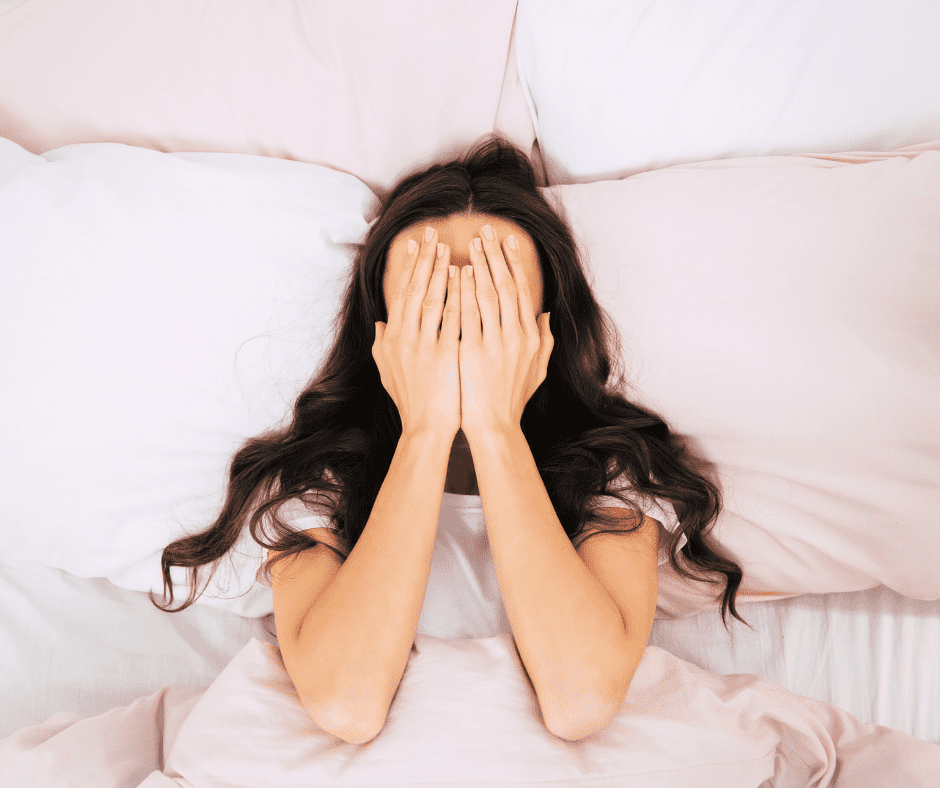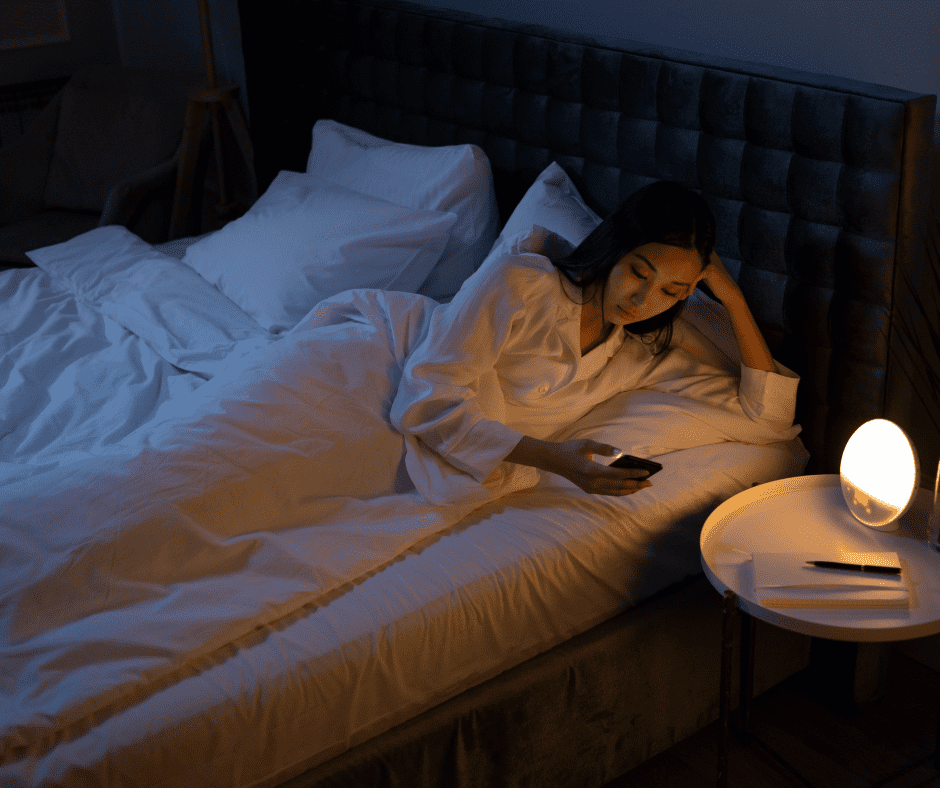“Sleep: There is no better demonstration of a giant shift in a conscious state that happens to almost every single living creature on this planet every 24 hours.”
– Matthew Walker, English scientist, and professor of neuroscience and psychology at the University of California
As runners, we spend a LOT of time outdoors, we get a good amount of vitamin D, we get fresh air, we burn calories with every stride and we eat nutritious meals (most of the time)… sounds like the perfect recipe for a brilliant night of sleep right?
Well…
Very few runners actually get an adequate amount of sleep. There is a possibility that their training intensity, their running nutrition, and the time of day that they train could be the cause of their insomnia.
Did You Know:
- 237 million people globally struggle with insomnia.
- People over the age of 60 are the age group that has the highest reported levels of insomnia.
- Women are 40% more likely to have insomnia than men.
The Centers for Disease Control and Prevention (CDC) advises that most adults need at least 7 hours of sleep each night. Let’s have a deeper look at insomnia and how it is triggered for runners specifically.

Insomnia Defined
Insomnia is a type of sleep disorder. People who experience insomnia can’t fall asleep, they can’t stay asleep or they can’t get enough quality sleep.
Insomnia may not affect everyone every night, it can come and go. Some people unfortunately have to live with it permanently.
The two types of insomnia are short-term; which is mostly triggered by stress, and chronic insomnia.
Short-term insomnia: Lasts for a few days or at most weeks.
Chronic insomnia: Lasts three months or longer.
Effects Of Insomnia On Your Health
Over time, insomnia can negatively affect your mental and physical health.
- Central nervous system
- Immune system
- Respiratory system
- Digestive system
- Cardiovascular system
- Endocrine system
- Heart Rate Variability
- Central nervous system: Insomnia can disrupt how your body usually sends and processes information, it also alters your mental abilities and emotional state which can cause anxiety and depression.
- Immune system: When you do sleep, your body produces protective, infection-fighting antibodies to combat bacteria and viruses, a continuous lack of a good night’s rest can eventually result in chronic conditions, such as diabetes and heart disease.
- Respiratory system: Sleep deprivation makes you more vulnerable to respiratory infections like the common cold and flu.
- Digestive system: Sleep affects leptin and ghrelin, which are hormones that control feelings of hunger and fullness. Without enough sleep, your brain reduces leptin and raises ghrelin, which is an appetite stimulant.
- Cardiovascular system: Getting a good night’s sleep stimulates processes to keep your heart and blood vessels healthy. Without adequate sleep, you run the risk of a heart attack and stroke.
- Endocrine system: Growth hormone levels are increased by sleep. This is achieved early on in the night. This is essential; because the growth hormone stimulates cell reproduction and regeneration and improves brain function.
It has been proven that the majority of testosterone release happens during REM sleep. REM sleep happens about an hour to an hour and a half after falling asleep, it’s when you have vivid dreams. Not getting enough REM sleep can lead to low testosterone levels affecting various essential functionalities in both men and women. - Heart Rate Variability: Heart rate variability is where the amount of time between your heartbeats fluctuates slightly. This is a fantastic tool for runners to use to assess their state of readiness for training. Insomnia would definitely have an effect on this.
Now that you know how bad insomnia is for your mental and physical health and will therefore affect your running performance, let’s have a look at how to tell if you have insomnia…
How To Tell If You Have Insomnia
There are a lot of different symptoms of insomnia but the most common include:
- Difficulty focusing on tasks
- Difficulty paying attention
- Increased errors or accidents
- Ongoing worries about sleep
- Waking up too early
- Not feeling well-rested
- Daytime tiredness
- Difficulty falling asleep
- Waking throughout the night
- Irritability, depression, or anxiety
- Struggle to remember things
Let’s find out why sleep isn’t always on a runner’s side…
Why Running Could Be The Cause Of Your Insomnia
- Overtraining
- Incorrect Nutrients
- Time Of Training
- Nerves & Excitement
Overtraining
If you increase your training without sufficient recovery, you will eventually put yourself at risk of overreaching and eventually overtraining.
Overreaching is the bit before you are actually overtrained. Overtrained status is very severe and takes months to reverse
Runners that overtrain can develop the parasympathetic overtraining syndrome, more commonly known as overreaching and “overtraining”.
Where performance as well as physical health declines rapidly and will take months to reverse.
Overreaching as explained above is more in line with what most people will experience – which is characterized by (decreased max HR in sessions, fatigue, etc).
A lack of sleep means your body produces fewer recovery hormones and instead produces stress hormones like cortisol, which inhibits sleep. Continuing in this cycle will just get worse and worse. No sleep = less recovery = less sleep = worse recovery…
Incorrect Nutrients
While training and actually, all the time, your body requires essential nutrients to function optimally, this is only gained through a well-balanced diet.
Well-balanced Diet: This means eating a wide variety of foods in the right proportions, and consuming the right amount of food and drink to achieve and maintain healthy body weight.
You can learn more about what a well-balanced diet consists of, here.
Remember: We know that we require sound nutrition to fuel our running, but we often forget that we need food/ fuel just to allow our body to function daily. Just for you to breathe in and out…
According to this study, nutrition can profoundly affect the hormones and inflammation status which directly or indirectly contribute to insomnia
Poor nutrition will also lead to low energy availability (and long-term REDs) which in turn affect recovery and therefore sleep.
Time Of Training
A lot of people may not know this but the time of day that you choose to train has a major effect on the quality of sleep you will be getting that night.
When you train, your body increases adrenalin and cortisol. If you train close to bedtime then why you do hit the hay, your nervous system will still be stimulated and your heart rate could still be raised making it very hard to fall asleep.
Time of training is seen as so important it’s even used in jet lag strategies now: Read about it here.
Nerves & Excitement
If you’re training for a specific race coming up or you’ve got a long run planned in a few days, there’s no question about it, you’re going to be excited and for most of us, there will be some feelings of nervousness.
For a lot of us, we will be going over our endless checklists and race prep lists recounting each step we’ve taken to get to this point to make sure we haven’t missed anything… of course sleep is going to take a back seat when your mind is racing. (This is why sleep in the week or so leading up to race day is key and not just the night before)
Women going through menopause suffer greatly from insomnia… A study published in the Journal of Clinical Sleep Medicine found that regular exercise, like running, can improve the quality of your sleep and help you sleep through the night.
If you’re interested in learning more about managing your insomnia as someone going through menopause, we’ve put together a guide called: The Definitive Guide to Running To, Through, and Long After Menopause.

Post-Run Insomnia Remedies
It’s important to note that some insomnia won’t be helped with these good sleep hygiene strategies. But these are things that are within our control to do and if they dont work then you should seek medical advice…
- Get into a routine and follow a training program. This will save you time by not having to plan your morning, you’ll know far in advance what your training session will be and be able to follow your routine comfortably, and instead, you can use that time to get some extra sleep.
- Make sure your room is dark. The darker the room, the better quality of sleep you will have. Use eye patches if you need to. (I bought a set the other day that doesn’t squash your eyes and I am sleeping way better!)
- Make sure your room is cool. Humans sleep well in a “not cold” but cool environment.
- Make sure that there are no flickering lights. There should be no cellphone beeping lights or TV lights. Avoid ANY blue light at least an hour before bed.
- Have a good run-up to your sleep time. At about 30 to 45 minutes before you plan to go to sleep, try to limit the amount of time you spend on blue lights. Instead, let your mind quieten down and opt for reading a book.
Sleep plays a vital role in your health and your mental & physical well-being. Let’s have a look at why sleep is EXTREMELY important for runners…
To sum running and insomnia up, yes – running makes you feel tired, sometimes absolutely exhausted… but that doesn’t always mean it’s going to result in a good quality night’s rest. It’s important to prioritize sleep as it is one of the non-negotiable pillars of recovery, training, and ensuring you get to the next workout feeling good.



Comments are closed.